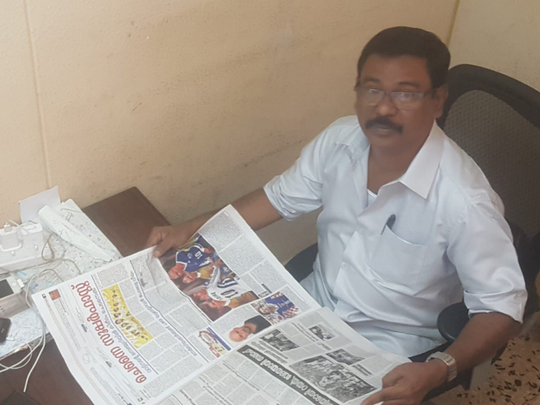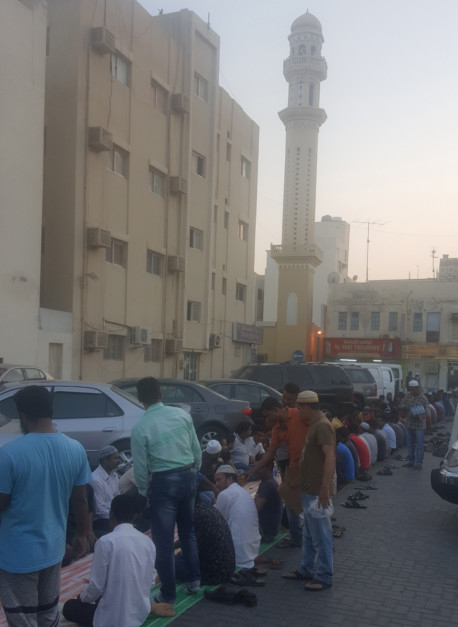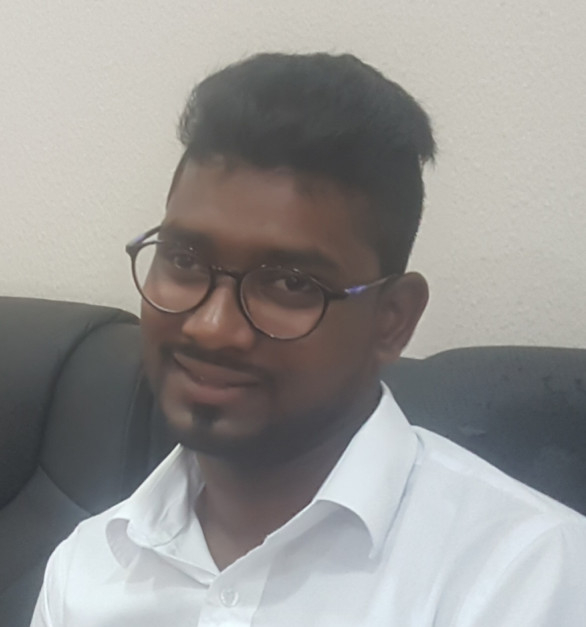
Manama: Before coming to Bahrain from his native India, Sai Krishna Gudla, 22, had just a vague idea about Ramadan and the details about what Muslims did throughout the month.
This month, marking his first Ramadan among Muslims, he has decided to refrain from drinking, eating or even smoking during fasting hours.
“It is not really difficult as there are many Indians around and the local people are very accommodating,” Gudla, who works as an office boy, told Gulf News.
Gudla lives in Muharraq, the island city that’s the second largest in the kingdom after the capital Manama, in a flat with 12 other people, all Indians, including two Muslims.
“We get along fine because there is mutual respect and no one interferes in the private life of others.”
Since two of his flatmates wake up for Suhour, he got in the habit of waking up with them at 3:00am, since he cannot go back to sleep when their alarm rings.
“We eat Suhour and chat until 5:30am until the company bus comes to pick us up for work,” he says.
While his workplace does not expect its non-Muslim employees to fast, Gudla says he does it to earn their respect.
“It’s not so difficult. If Muslims can do it, then I know I can too,” he says.
“So far, I am really enjoying the experience.”
Sunil, a watchman living in Manama for three years, says he and his Muslim colleagues with whom he shares accommodation, reached an agreement early on in their relationship.
“As long as they respect our celebrations and traditions, we respect theirs,” he says.
“We eat Suhour and iftar with them and avoid eating during the day when they are around,” he says.
“Practically, I am fasting.”
Sunil says he enjoys Ramadan because there is less pressure at work and fewer chores to do since his shift is during the day and many people are just relaxing in their homes or at work.
He finds it difficult to be in the hot sun without drinking water but says he learning to cope with it.
For, Abdul Lateef, a Muslim from the Indian state of Kerala, Ramadan in Bahrain has been an enjoyable experience.
He says that fasting since he was a young child has allowed him to build the stamina needed to deal with the challenges associated with spending hours without food or drink.
“What I like here in Bahrain is the availability of impressive facilities that help Muslims in performing their prayers, especially Taraweeh — the post evening prayers during Ramadan.”
Iftar meals are readily available for those in need, which is one of the great things about living in the Gulf, he explains.
Scores of mosques organise group iftars that bring together hundreds of expatriates, mainly Asians, at sunset to share free meals.
“We have set up this tent for the month,” Shahidullah, the Bangladeshi supervisor, said, standing by the tent on a parking lot on the vibrant Gudhaibiya Avenue.
“It can accommodate up to 300 people inside and when it is filled, around 200 to 300 people sit on carpets and mats around it so that they are served the meals to end their fast.”
Mainly Bangladeshis, but also Indians, Pakistanis, Nepalese and other nationalities flock to the tent a short time before the sunset.
“We even receive some non-Muslims who want to sit down with the others and eat. It is a time for sharing and extending hands to the needy, so we do not mind. The spirit of Ramadan should encompass everyone.”














